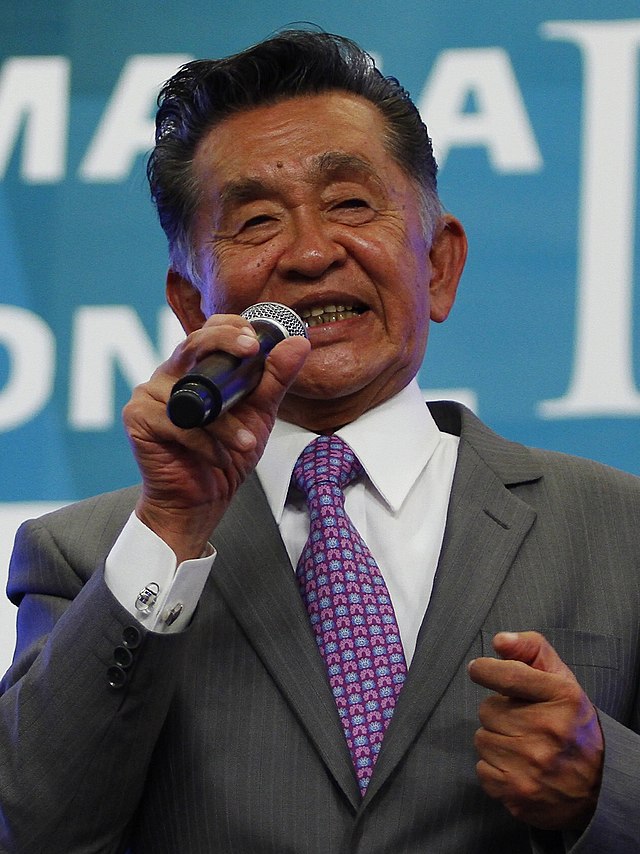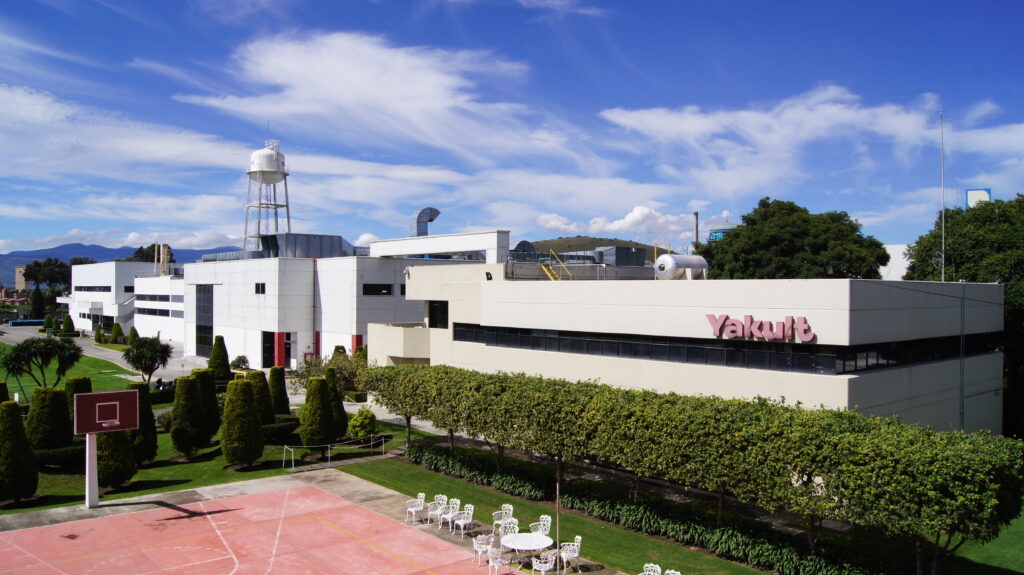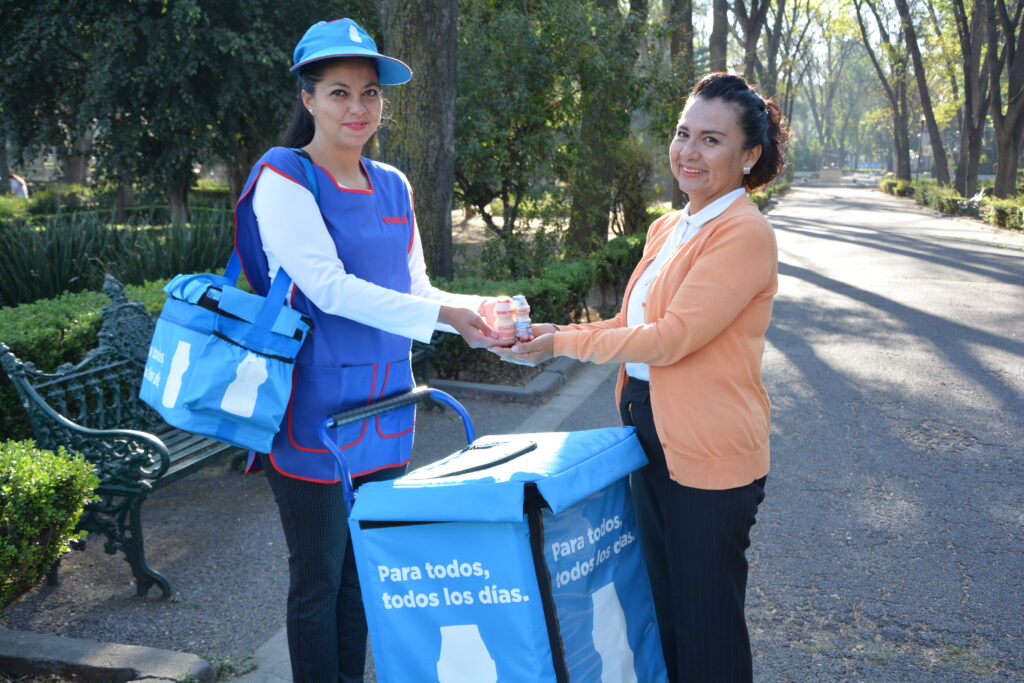Establishing Yakult in Mexico - Contributing to the Japanese community
Japanese-descendants are actively working on the other side of the world
The original article in Japanese was included in Journal Global Management in March 2025 edition, published by Japan Overseas Enterprises Association, Tokyo Japan. The following English version was translated by Kazuko YOKOYAMA.
Profile of the Article contributor

International Career Development Inc.
CEO Kazuko Yokoyama
International Career Development Inc.
CEO Kazuko Yokoyama

Journalist living in Brazil Tomoko Oura
Profile of the Article contributor
Kazuko Yokoyama was born in Hokkaido, Japan. After graduating from Hokkaido University, she earned an MBA from Indiana State University in the United States and PhD.in Economics from Kyoto University, Japan. She had worked for UN Organizations such as ILO, UNHCR, and FAO before returning to Japan for teaching at university. Currently CEO of International Career Development, Inc., and part-time university lecturer.
Tomoko Oura was born in Hyogo Prefecture, Japan in 1979 and grew up in Kobe City until graduating from high school. After graduating from the Faculty of Education at Shinshu University, she has lived in Sao Paulo, Brazil since 2001. She has been working as a freelance journalist and writer for the Nikkei Newspaper in Brazil and is also working in editorial work.
Is Yakult a Mexican brand?
A Mexican student studying in Japan was surprised to see Yakult in a Japanese convenience store, thinking “Wow, they have a Mexican drink here!.” She was even more surprised to learn later that Yakult was a Japanese brand. Yakult is expanding its business in 40 countries and regions around the world, including Japan.
Yakult de Mexico, S.A. de C.V., which has developed a business so deeply rooted in the local community that many people recognize it as a Mexican company, was established in 1981 as a joint venture between Yakult Japanese HQ and three Mexican co-representatives (Carlos Kasuga, Akira Sato, and Pedro Hirata). The first president of the company was Carlos Kasuga, a second-generation Japanese-Mexican, who was 44 years old at the time.

Colorful float ring
Carlos’s father was from Nagano Prefecture in Japan. In Nagano, where sericulture was thriving, the price of raw silk collapsed in the wake of the 1929 Great Depression, and many farmers found themselves in dire straits. At the age of 20, Carlos Kasuga’s father sought a new life in a new land. At first, he had hoped to go to the United States, where his older sister had emigrated, but he gave up on that plan due to the 1924 Immigration Act which restricted immigrants from Asian regions. In 1930 he emigrated to Mexico. At the time, many people were emigrating to Manchuria in China, but he brought a woman from his hometown to Mexico and built a family there.
After working in agriculture in the countryside, the family opened a general store, but the attack on Pearl Harbor forced the family to move to Mexico City. After World War II, they stayed in Mexico City and opened a confectionary store. Carlos, the son, graduated from high school in Mexico City and qualified as an accountant. In 1956, at the age of 18, he studied Japanese at Sophia University as a privately financed international student.
One day, he saw colorful float rings for use at the beach for the first time at a trade fair in Tokyo. At the time, in Mexico, people used car tire tubes for swimming. When Carlos wrote his father about the rings, his father ordered his son to quit university and go to a float ring manufacturing company in downtown Tokyo to learn how to operate and maintain the machinery. Carlos lived in the company dormitory with Japanese youths, went to the public bathhouse nearby, and learned about Japanese culture. Furthermore, he witnessed the president working harder than anyone else, arriving at the office early every day to clean the factory grounds before the employees arrived, and he learned the basics of business and management practices in Japan in depth.
His father founded Industrias KAY, a company that manufactured inflatable float rings in Mexico City, and the company later developed into a major toy manufacturer in Mexico. Carlos helped his father’s business while practicing Japanese-style management. The company’s initial workforce of 13 employees grew to over 600. At the opening ceremony of the 1968 Mexico Olympic Games, giant inflatable rings in five different colors from KAY floated in the sky above the main stadium, further increasing the company’s name recognition.
Towards solving social problems
In addition to social problems such as a low average life expectancy and a high number of unmarried mothers, at the time many people in Mexico were eating vegetables without washing them, and so many people had intestinal problems. As part of market research, he drove around the city in a light truck at very early morning, collecting household garbage bags that had been left by the roadside to analyze their contents, and discovered that Mexicans were drinking a lot of carbonated drinks. This knowledge became a strong motivating factor for him to establish Yakult in Mexico.
When establishing Yakult de Mexico, Carlos took out a loan of one million US dollars from a bank. However, due to the sharp depreciation of the peso, the amount of the loan ballooned, and he was forced to struggle to repay it. It took eight years for the business to get on track.
In South America, Brazil was the first country to establish a Yakult company, and in 1966, Yakult Brazil Ltda. was established. By the time the company celebrated its 10th anniversary, it had sold 1 million bottles in Brazil. Carlos was invited to the anniversary ceremony, where he saw many Brazilian Yakult Ladies marching in a lively line at the stadium. Carlos was convinced that the lactic acid bacteria drink would also be accepted by Mexicans.

Strong desire for the Japanese community
Carlos has been actively investing his own money in education and cultural welfare projects, mainly for the Japanese community. His motto is “being a good citizen” and “smiling”. This is largely due to the influence of his father, who passed away at the age of 62. His father’s dream was to provide cultural education about Japan and Mexico, and more specifically, to establish a new educational institution that was open to both Japanese and Mexican people. In 1977, he fulfilled his father’s dream by helping to open the Japan-Mexico Institute (Liceo). The institute continues to enjoy a high reputation in Mexico to this day.

As of March 2023, an average of around 4 million Yakult products are consumed by the Mexican people every day, and around 9,000 Yakult Ladies are working. Yakult and the Yakult Ladies are very familiar to the Mexican people, and the company has firmly taken root in the country. In recent years, there has been a succession of Japanese companies in the automobile industry moving into the country, and sales of Yakult drink in the central highlands (the Bajio region) of Jalisco and Guanajuato states, where employment is increasing, are particularly strong. Carlos hopes that he can continue to contribute to the health of not only Mexicans but also Japanese expatriates and their families living on the other side of the world.
ABOUT ME

Kazuko Yokoyama was born in Hokkaido, Japan. After graduating from Hokkaido University, she earned an MBA from Indiana State University in the United States and PhD.in Economics from Kyoto University, Japan. She had worked for UN Organizations such as ILO, UNHCR, and FAO before returning to Japan for teaching at university. Currently CEO of International Career Development, Inc., and part-time university lecturer.
Recent Publication
Newsletters
‣ January, 2026: ICD Japan Newsletter No. 8
‣ January, 2025: ICD Japan Newsletter No. 4
‣ April, 2025: ICD Japan Newsletter No. 5
‣ June, 2025: ICD Japan Newsletter No. 6
‣ October, 2025: ICD Japan Newsletter No. 7
‣ April, 2024: ICD Japan Newsletter No. 1
‣ July, 2024: ICD Japan Newsletter No. 2
‣ October, 2024: ICD Japan Newsletter No. 3
‣ January, 2025: ICD Japan Newsletter No. 4
